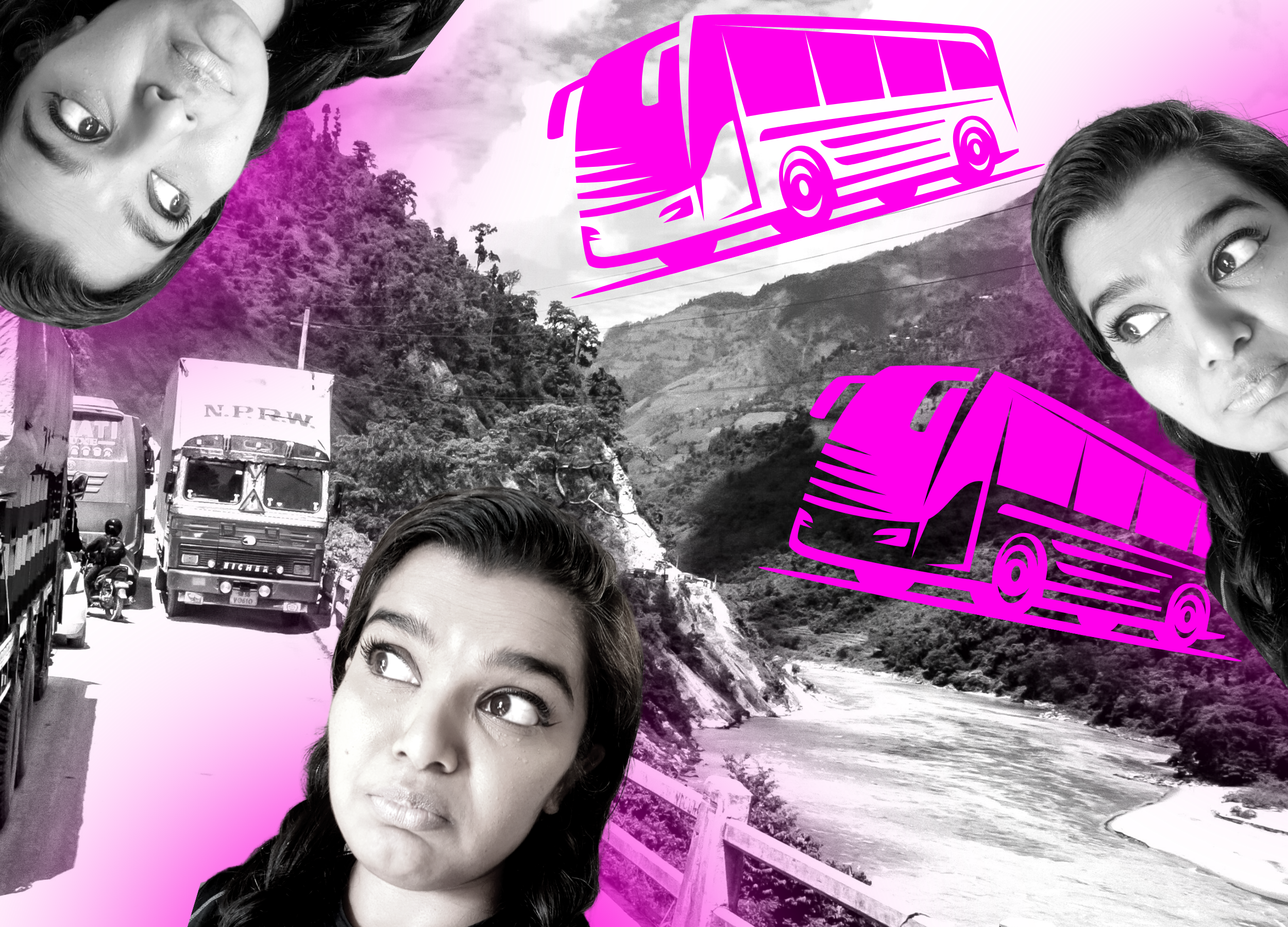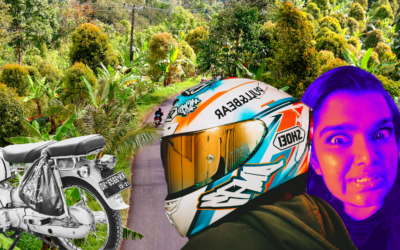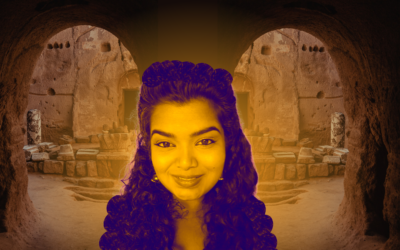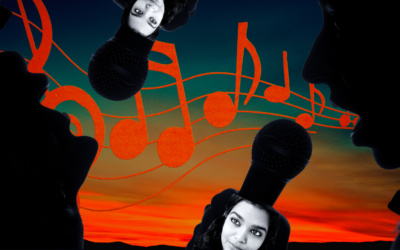“You can’t take this bus – it isn’t for tourists.”
Like most travellers, I hate being called a tourist. And now – here was Maila Gurung doing the very thing…warning me about a bus only for ‘locals’.
I was doing the holidayer’s standard pilgrimage from Nepal’s bustling capital city of Kathmandu to the laid-back lakeside of Pokhara. Instead of cutting across the hillside on a scenic but dizzy hot seven-hour bus ride, we decided to reduce our road trip by rafting along the Trisuli river. After bobbing on playful grade three rapids for half a day, we disembarked in a small village to catch a bus to Pokhara.
Here was adventure at it’s finest and most pleasurable.
We took a ‘taxi’ (read: an old pickup truck) to get to the bus stop. People scurried across fields to jump onto the pickup truck taxi while it was still moving. Within a few minutes, we were surrounded by folks sitting, standing and hanging off the truck. The orange sunset sky was beautifully exploding into dark redness. It reminded me of when I used to smash spicy Indian mango chutney into rice and laban (Arab buttermilk) as a child.
The wind was blowing through our hair. Sitting cramped together in the back of that truck I felt content as I reflected on how pleasant the ride was. Smiling, we got off the truck and began to walk to the bus, backpack hitched high over my shoulder.
Our guide and friend Maila stuck his arm out and shook his head.
“You can’t take this bus – it isn’t for tourists.”
I was slightly incensed that he played the ‘delicate tourist’ card. After all, hadn’t we just taken a taxi with the residents of the neighboring villages? Still, we were in a charming bustling little town, surrounded by many people and stray dogs. I propped up my legs on my cabin bag and engaged in a spot of blissful people-watching.
As the minutes rolled by, so did the buses.
Each time I’d hopefully raise my head, only to hear: ‘No – not for tourists.‘ After two hours had passed, Maila’s resolve began to soften. He agreed to let us use the local bus…on the condition he would accompany us to Pokhara. I thought this was unnecessary – but acquiesced.
Walking past the rows of seats on the small ‘not-for-tourist’ bus, I braced myself for this “scary” ride.
How bad could it really be?
As a child, I had taken several packed-gravity-defying nausea-inducing bus rides through cities in India during the summer. Those rides used to make me feel a little unnerved and imbalanced at first. Then, I’d get over myself and soon I would enjoy the ride. There was a part of me determined to show Maila that I have and can stomach the non-tourist option.
I was wrong. So, so, so wrong.
That ride was one of the scariest things I’ve done in my life (scarier than feeling my feelings or bungee jumping off a 160-meter cliff). Given the option, I would never do it again.
Imagine a small old bus, dashing about hairpin bends linking tiny roads carved into a steep mountain range.
It’s pitch black.
You can’t see anything around you, which makes your heart pound faster. Every now and then you look out through the window and catch a glimpse of moonlight bouncing off the river which seems so dark, daunting, distant and yet…so close.
For a second, headlights blind you. You realise, with trepidation, this narrow road has traffic going both ways.
Images of a dilapidated bus plunging nose-first in the river flashes in your mind’s eye. I had seen a similar bus earlier that day while rafting in the river. At the time, I hadn’t thought much of it… but at that moment I was convinced I was going to share a similar burial ground.
“This is how I will die.”
I noticed my fellow passengers seemed to share my nerves.
Not encouraging, at all.
I often gauge the severity of a situation by the reactions of those around me who have more experience with such things. For instance, if there’s a lot of turbulence on an airplane and the cabin crew seem unperturbed, I feel reassured. They obviously know how things work and if they’re not worried, I shouldn’t be. This wasn’t the case on that bus. As soon as we hit the main road, the pleas from our passengers to the driver began. As it was all in Nepalese, I asked Maila for a translation.
“Brother, please do drive fast so we can get to Pokhara. Just drive us fast but a little bit less.”
This confusing rhetoric was important, Maila explained.
Driving rashly was most likely intricately linked with the driver’s ego.
Even though there have been a few fatal accidents with night drivers taking this route, some drivers aren’t as cautious.
He advised against insulting the driver by asking him to ‘drive slower’ or to ‘stop aggressively flirting with death’ (as I would’ve put it). Instead, be subtle. I didn’t agree with this approach. From the looks of it, neither did the driver.
He continued to wildly whizz about the mountain as if he was being chased.
I clenched the sticky beige plastic handle of the seat in front of me with both my fists. My stomach knotted up, as did my jaw and shoulders.
Going back and forth in my mind were six words.
“This is how I will die…”
And then, Maila started to sing.
A man in the seat in front of me joined him. And then another.
Five stanzas in, the entire bus was crooning away this Nepalese love song about a man (unsuccessfully) trying to court a woman.
The chorus was oddly comforting. The ethos was refreshing.
The song bled into another song and another.
Soon, I began to relax, I smiled and then, much to my surprise, I fell asleep.
*
The Power of Art
I woke up safe in Pokhara – exhausted and enlightened.
That terrifying bus ride taught me a life lesson on the power of music and the arts to lift the human spirit.
Folk songs in a language I couldn’t understand, transformed me from being a nervous wreck to someone snoring on a bus.
A single line of a love poem sung by a lone voice reminded the other passengers of our universal struggles and triumphs of being human and encouraged them to join in. Through his poetry, Maila was able to put an entire bus at ease (and me to sleep).
This is the power of art.
Your art.
Your songs.
Your poetry.
Matters a lot.
Your creative expression has the ability to soothe and uplift. So, for the sake of your nervous system…and mine, please do create. Sing a song! Recite a poem! Share your story! It will helps us all.
To amend the old adage: when the going gets tough, the tough gets going… and singing.




